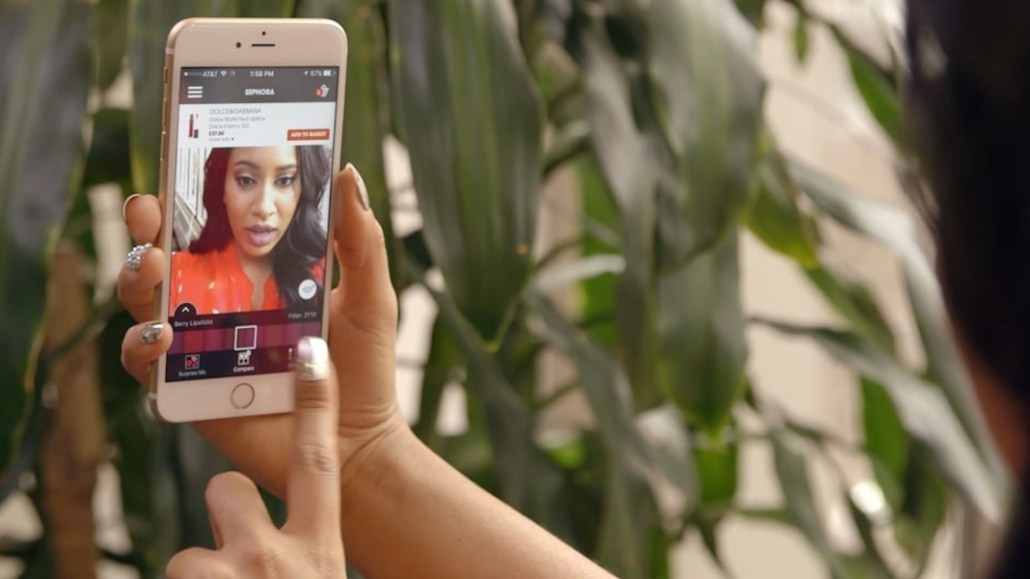Secure your place at the Digiday Media Buying Summit in Nashville, March 2-4

Bridget Dolan and her team at Sephora’s Innovation Lab, based in San Francisco, were a year into developing a new virtual reality tool for the retailer’s mobile app when the technology used to power the experience saw a breakthrough.
“When it comes to augmented and virtual reality, it can only be successful if it’s truly useful,” said Dolan, Sephora’s head of innovation. “We weren’t interested in just buzzy. A lot of things like technical accuracy and timing had to come together, and there was a time last year when, during testing, we hit a tipping point.”
Sephora’s team and its technology provider, augmented reality platform ModiFace, had pushed facial recognition technology to a new point of sophistication. After months of development, the technology can break down one virtual makeup application into a step-by-step layering process, while maintaining critical accuracy and reaching mass scale.
More in Marketing

WTF are tokens?
When someone sends a prompt or receives a response, the system breaks language into small segments. These fragments are tokens.

AI is changing how retailers select tech partners
The quick rise of artificial intelligence-powered tools has reshaped retailers’ process of selecting technology partners for anything from marketing to supply chain to merchandising.

YouTube’s upmarket TV push still runs on mid-funnel DNA
YouTube is balancing wanting to be premium TV, the short-form powerhouse and a creator economy engine all at once.








